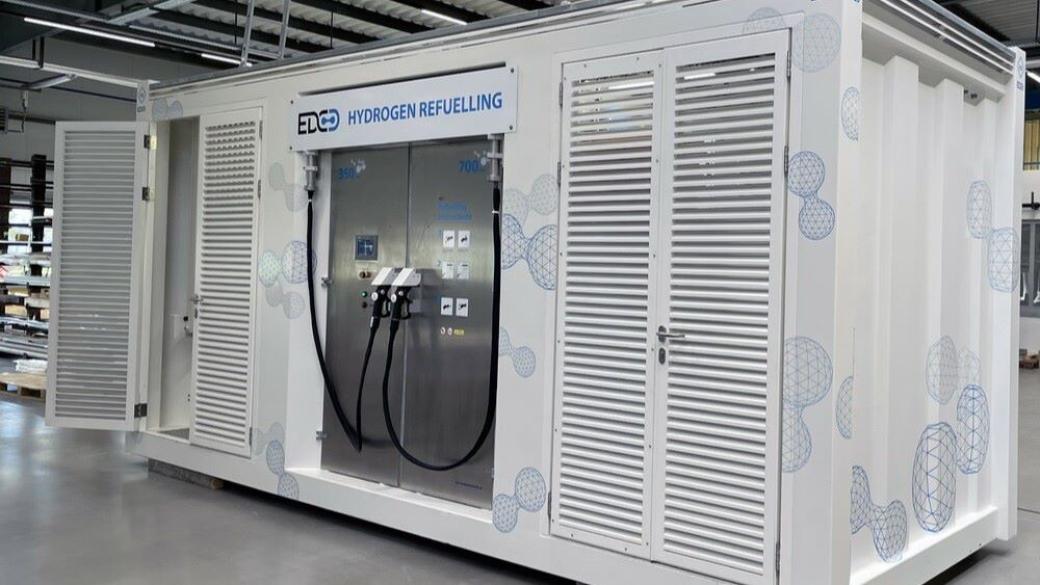Bulgarian Academy of Sciences installs the first hydrogen charging station in the country
The facility will be able to charge cars as well as vans and trucks

© ECONOMIC.BG / BAS
The first hydrogen charging station in Bulgaria and (in the Balkans) will be officially opened on 10 May. It is located at 11 Iskarsko Shosse Street, with an entrance from Myunhen Street, reports the Bulgarian Academy of Sciences (BAS), which is developing the project.
The station is part of the "Integrated Energy Systems" Field Laboratory of the "Hitmobil" Competence Center, part of the Institute of Electrochemistry and Energy Systems (IEES) "Acad. Evgeni Budevski" at the BAS. The project is financed under priority axis 1 "Scientific research and technological development" of the Operational Program "Science and Education for Smart Growth", co-financed by the European Regional Development Fund, part of the EU's cohesion policy.
The new charging station in essence represents the beginning of hydrogen electric mobility in Bulgaria.
Hydrogen production is carried out through an electrolyzer with a capacity of 8 kilograms per day. The fuel produced on-site goes directly to the hydrogen charging station, where it is compressed to the required pressure to carry out the charging. This is done through two charging outlets – at a pressure of 350 bar and 700 bar. The two pressure standards cover the charging options for cars, vans and trucks, and the use of high-pressure buffer vessels allows vehicles to be charged within minutes.
In case of higher consumption, the hydrogen charging station has the possibility to use hydrogen from external bottles, delivered from other sources.
The charging station was manufactured by the Austrian company EDC Anlagentechnik and is certified as mobile. This makes it possible to use it for demonstration purposes at other sites, outside of its main location within the Field Laboratory in Sofia.
IEES-BAS is also the owner of the first registered hydrogen-electric car in Bulgaria - a Hyundai Nexo. It was purchased under the procedure for delivery and warranty maintenance of an electric vehicle with hydrogen fuel cells, necessary for the creation/modernization of research infrastructure of Laboratory 5: "HIT for energy storage and electromobility" - part of the HITMOBIL Competence Center project. The hydrogen-electric car with fuel cells has zero emissions – both in terms of harmful substances and carbon dioxide.
Among the main challenges facing hydrogen mobility is the lack of charging infrastructure. Hydrogen charging station networks around the world are in the initial stages of construction, and Bulgaria does not have one at the moment.
Co-financed by the European Union. The views and opinions expressed, however, are entirely those of their author(s) and do not necessarily reflect the views and opinions of the European Union or the European Commission. Neither the European Union nor the European Commission is responsible for them.
Translated by Tzvetozar Vincent Iolov

 Economic.bg
Economic.bg 